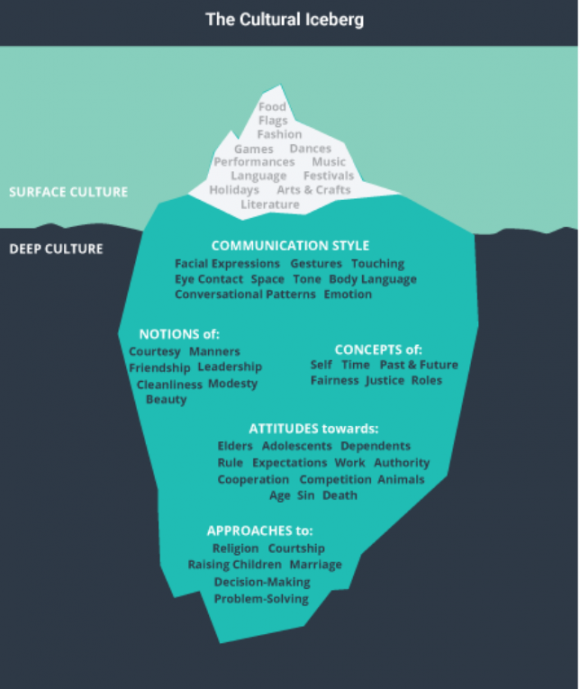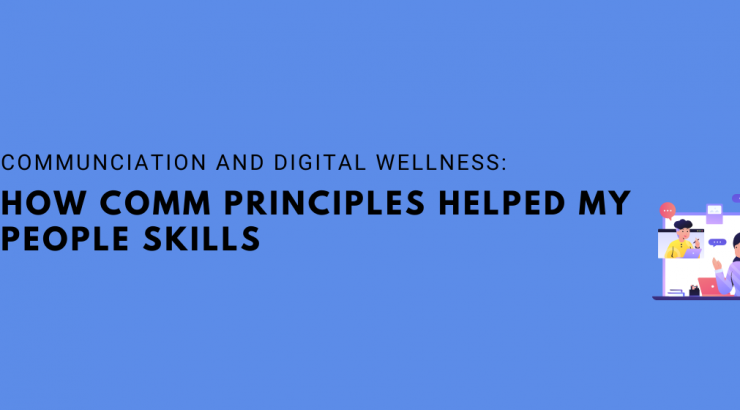Communication and Digital Wellness: How Comm Principles Helped My People Skills Kait Kovach's Internship with The Digital Wellness Institute
February 13, 2021
Hi, I’m Kait Kovach and I will be graduating this semester with a B.A. in Communication Studies with an interdisciplinary cluster in Leadership. I decided to return to the Digital Wellness Institute to intern as their Lead T.A. Trainer for their Fall cohort. I wanted to return because this field excites me and feels so necessary for our world right now.
Within my time as a Lead T.A Trainer, one of the many tasks I was given, was the power to interview, hire, and reject applicants. This presented a challenge to me because it was new territory. It was difficult saying no to individuals who were overqualified for the position. I found myself asking lots of questions to help the process along. I soon found myself overthinking it. I had questions like: shouldn’t the individuals who don’t fit get an opportunity to learn and grow? What if they didn’t grow? If I still hired them, would it cause a problem in the long run? The hiring process was helpful since I now feel more confident about interviewing in the future (thanks to Michael Ross’ Business Communication class). Soon, it came time to train. I created helpful checklists and introduced the intern to the various platforms we use for the course and grading. One of the duties as a T.A requires constant communication with the learners in the form of acknowledgment, encouragement, answering questions, and updating the learners with information.
This is where a different kind of situation occurred, and I was thankful for some of the courses Chapman provided to me. I trained the intern, took a hands-off approach, and focused my time and energy on projects that needed attention before the cohort ended. I was still a support system to them and helped as much as they needed me to. One day, I received a message from our intern asking for help interacting with a few students. Unsure and inquisitive, I asked for some background information and suggested we meet over zoom to discuss since communicating that way was easier than a long thread of emails. What we found was a stream of messaging that was bold, straightforward, and came off a bit harsh and critical. Before we made any hasty decisions, I suggested we pause and take a moment to gather more information. I wanted to make sure that we were giving the benefit of the doubt. We paused and tried to imagine what the learning experience must be like on the other end. Consistently in every message, there was a need for help and some unusual grammatical errors. After digging around, I realized that we were facing an intercultural communication clash.

There’s more than meets the eye when it comes to intercultural communication
I mentioned how in my studies I learned specifically about high/low context and direct/indirect styles of communication that are built culturally. As Americans, we tend to be direct and sit on a very low context scale. Interestingly enough, we were encountering a much higher directness level and an even increased low context. Upon reflection, I remembered that what often happens is that we overlook or lose awareness of our ethnocentric tendencies. Simply because something is different, doesn’t immediately make it wrong or inappropriate. It could be that it’s culturally different. We talked about this at length and created a game plan for communicating and interacting as the course continued.
I can thank both my intercultural communication class and my communication ethics class for this extra insight into navigating diverse communication interactions. In my Ethical Controversies in Communication class, we talked about the concept of moral imagination. This is when you pause and consider differences and try to see things from various points of view from whomever you’re talking to, especially those that are different from your own. Overall, practicing moral imagination bridges connection and communication acts when navigating globally diverse individuals and cultures. This is especially true when dealing with hot button issues and topics too. These classes were vital in helping me succeed because The Digital Wellness Institute teaches and supports a global audience. With help from the classes I took at Chapman, we successfully navigated this situation with an ethical and mindful communication approach.

Moral Imagination Defined
My experiences at Chapman and with the Digital Wellness Institute have enriched my ability to understand communication aspects and navigate and practice them in everyday life. During my time with The Digital Wellness Institute, it has been fun seeing how these concepts apply in the online realm. I look forward to seeing how communication principles will further shape my people skills (both professionally and personally).

